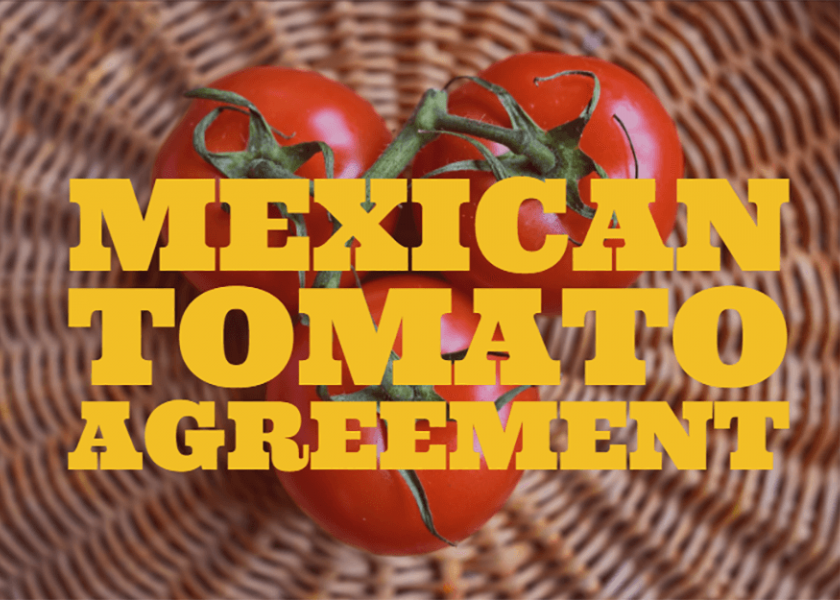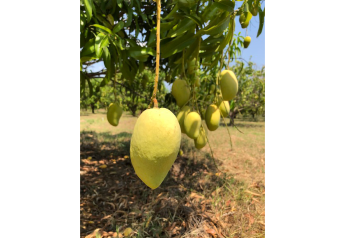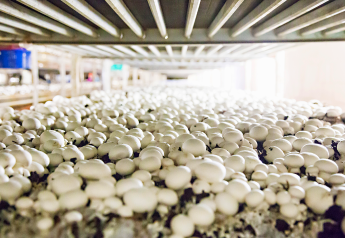Florida growers, importers dispute terms of suspension agreement

Florida tomato growers and Mexican tomato importers continue to tussle over the terms of the suspension agreement between Mexican tomato growers and the U.S. Department of Commerce.
In particular, both parties are watching how a coming ruling by U.S. Department of Commerce could change the way minimum imported tomato prices are calculated.
The Fresh Produce Association of the Americas and the Texas International Produce Association said in a news release that the groups applaud the efforts of Rep. Vicente Gonzalez, D-Texas, for his role in sending a letter with bipartisan backing to Secretary of Commerce Gina Raimondo.
The letter urged the Department of Commerce to maintain the current mechanisms for determining reference pricing, or the effective minimum price for Mexican tomatoes entering the U.S.
The letter said: “The minimum pricing threshold established by the 2019 Tomato Suspension Agreement through the “reference price” mechanism provides predictability for American tomato growers, produce distributors, and consumers alike. The proposal under consideration would require U.S. distributors to add all expenses incurred at the moment tomatoes cross the U.S.-Mexico border to the reference price, including wages, utilities, and inspection fees. This proposed interpretation stands in stark contrast to the decade-old interpretation of the reference price, which treats such expenses as included in the reference price and establishes that the reference price applies when the tomatoes are sold at the distributor’s warehouse/first point of sale in the United States.”
Florida reply
In response to the letter, Michael Schadler, executive vice president of the Florida Tomato Exchange, said the Mexican tomato industry and U.S. distributors of Mexican tomatoes don’t address the changed terms in the 2019 suspension agreement compared with previous versions.
“The Mexican tomato industry keeps talking about precedent from past agreements but doesn’t address the basic fact that the language of the 2019 suspension agreement changed,” Schadler said in an e-mail. “This change was an important part of the new agreement to protect American tomato farmers by aligning the agreement with the antidumping statute. The language of the new agreement must be enforced.”
Importer reaction
Lance Jungmeyer, president of the FPAA, said Congress is right to get involved.
“The basic rules and terminology for how competitors behave in the marketplace should not be offered up for reinterpretation,” he said in a news release.
“Since the first Tomato Suspension Agreement in 1996, the reference or sales price has always been established at the shipping warehouse. The terms and definitions in the agreement incorporate produce industry norms established under the Perishable Agricultural Commodities Act, something with a much longer precedent even than the Tomato Agreement. The changes being pushed by the FTE are spurious and nonsensical. We hope the people that are concerned about this issue submit letters to Commerce, because it’s a serious concern that industry needs to address.”
Changing a fundamental term such as “f.o.b. shipping point” will have far-reaching implications and potentially devastating economic impacts throughout Texas and North America, Dante Galeazzi, CEO and president of TIPA, said in the release.
“The tomatoes brought from Mexico through Texas represent investments in our state, jobs for our local communities, and healthy and affordable food for all Americans,” Galeazzi said in the release. “We applaud and thank Congressman Gonzalez for his leadership, as well as the other Congressional representatives that support this effort and this letter.”
The Department of Commerce is in the process of reviewing written submissions on this issue, according to the release, and will later address the issue formally.
“The FPAA, TIPA, and many others are watching closely to continue to encourage Commerce to maintain the precedent that has existed in the Tomato Suspension Agreement since 1996 and that has existed in the produce industry at large since the PACA was established,” the groups said in the release.







